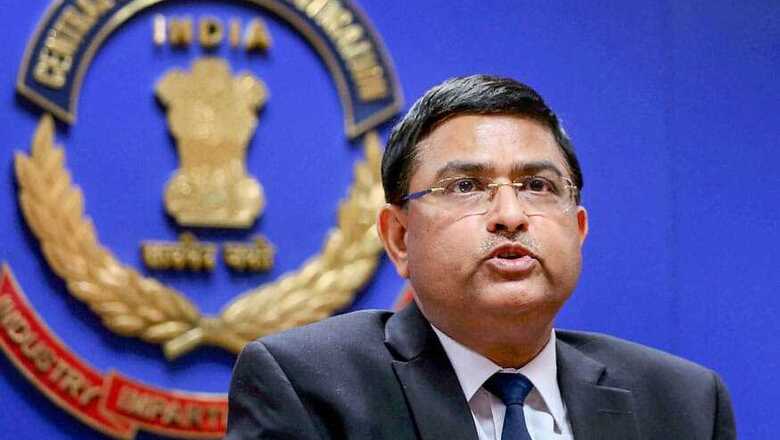
views
In an unprecedented move, Rakesh Asthana, Special Director and de facto No.2 in the CBI, was accused by his own agency of extorting, and taking money from an accused, leading to an FIR being filed against him.
Before being sent on “forced leave”, he moved the Delhi High Court to nix the FIR registered by the CBI. He could do so because in 2018, the Modi government amended the Prevention of Corruption Act, and added section 17A, which made it compulsory, that before any enquiry or investigation can be conducted under the PoC Act, an approval of the concerned government or department will have to be sought.
Although prior sanction to investigate is the proverbial bad idea that refuses to go away, it has never been as pervasive as this. The Supreme Court, in Vineet Narain, as far back as in 1998 struck down the Single Directive, which mandated prior sanction before a central governmental official could be investigated, by the CBI. The then central government reintroduced this idea by an ordinance, but the ordinance was never renewed. Despite the spirit of Vineet Narain, the NDA government added section 6A into the Delhi Special Police Act. Section 6A which was aimed to protect joint secretaries and higher officials of the central government from CBI investigations or inquiries. This survived only until 2014, when a Constitutional Bench struck it down as arbitrary and discriminatory, in Subramanian Swamy vs Union of India.
Neither the Vineet Narain nor the constitutional bench judgment has deterred the Modi government, ostensibly fighting corruption, to bring back the idea of prior consent in a form that provides the most comprehensive shield for those in government service. Any investigation or inquiry, by any agency, central or state, against any government employee, central, state or PSU, except cases where an accused is literally caught red handed, requires sanction by government departments. So, let’s say an inquiry was necessary into systematic purchase of a government ministry for a high value purchase, then that very ministry would have to give sanction to start a systematic investigation into the case.
One hardly needs to explain why that is problematic. The new amendment can and will cripple any new investigations against government officials, including CBI Special Directors, before they even get off the ground. In fact, Asthana’s lawyer argued that prior permission of the government was required even before the registration of an FIR against him. This is a mockery of what the Supreme Court had said in this context – “however high you may be, the law is above you”.
There is a second problem with this amendment. It is unclear on what basis a government would approve an inquiry, when an investigating agency does not have the means to determine whether prima facie evidence exists. Because no investigation or inquiry would be possible before government grants permission making this a Catch-22 amendment. Not only that, having to ask the government for prior permission also could result in the accused being forewarned, and thus taking steps to cover their tracks. Clearly, if this amendment is not done away with very quickly, it will set India back decades in its gradual movement towards less corruption and more transparency.
That said, if the government fears the wrath of an inquiry into or investigation against its own officers to this extent, then it should also perhaps concern itself with the wrath that the state routinely unleashes against ordinary people. To limit harassment of those seeking justice, criminal procedure needs to be reformed, and existing procedures implemented properly. For example, bail should be an actual norm, rather than an abstract one, and granted to those even handedly facing investigations. Searches should be conducted with judicial warrants and seizures should be attested by public witnesses. Witness statement should be video recorded. Prosecutors should vet the evidence underlying the chargesheet before it is filed. Perhaps it is time for the government to turn its attention to what investigations and inquiries do to ordinary people. It is the harassment that should cease.
(Avi Singh is an advocate who specialises in transnational law and serves as the Additional Standing Counsel for the government of NCT of Delhi. Views are personal.)

















Comments
0 comment